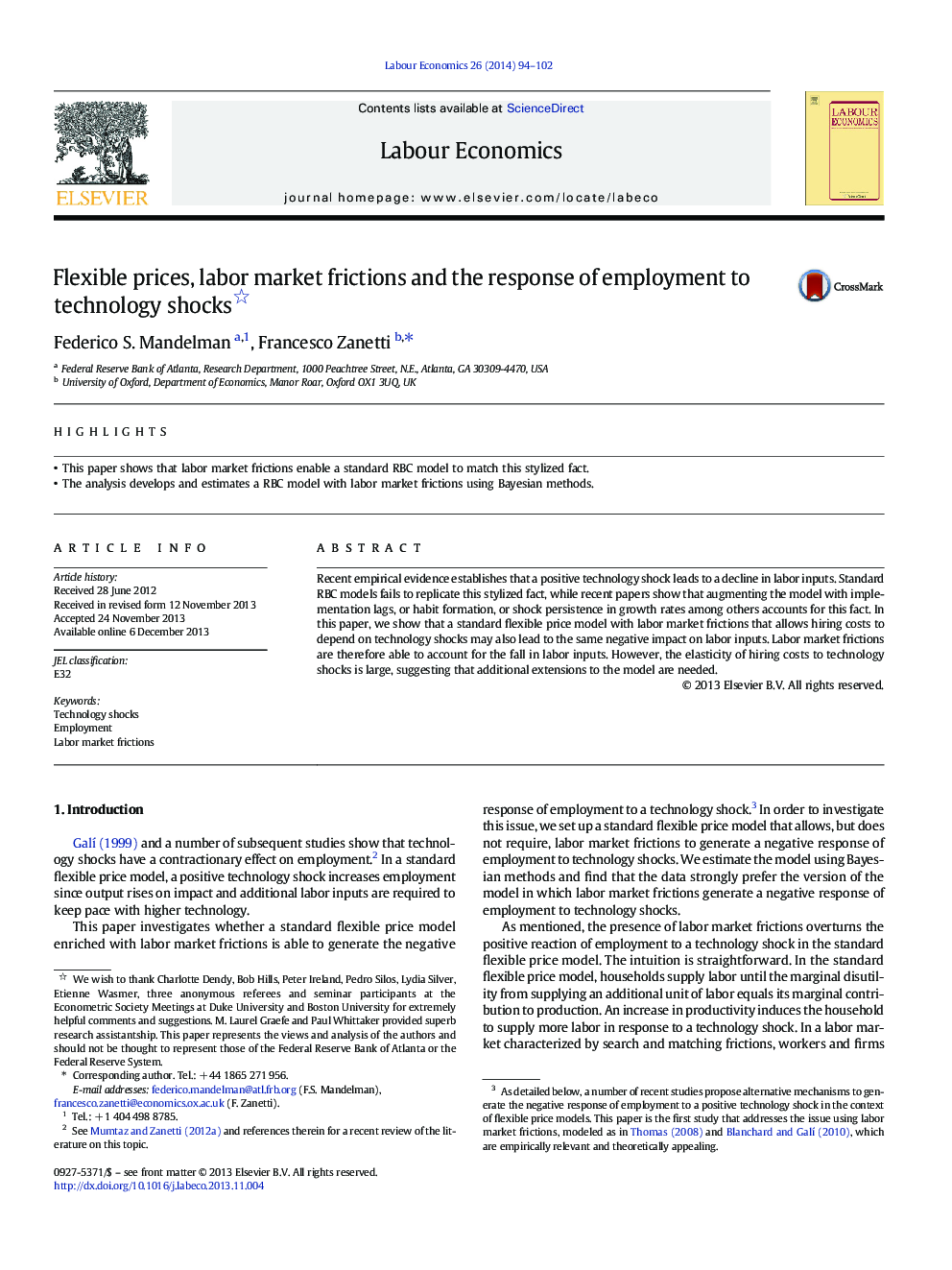| Article ID | Journal | Published Year | Pages | File Type |
|---|---|---|---|---|
| 7372199 | Labour Economics | 2014 | 9 Pages |
Abstract
Recent empirical evidence establishes that a positive technology shock leads to a decline in labor inputs. Standard RBC models fails to replicate this stylized fact, while recent papers show that augmenting the model with implementation lags, or habit formation, or shock persistence in growth rates among others accounts for this fact. In this paper, we show that a standard flexible price model with labor market frictions that allows hiring costs to depend on technology shocks may also lead to the same negative impact on labor inputs. Labor market frictions are therefore able to account for the fall in labor inputs. However, the elasticity of hiring costs to technology shocks is large, suggesting that additional extensions to the model are needed.
Related Topics
Social Sciences and Humanities
Economics, Econometrics and Finance
Economics and Econometrics
Authors
Federico S. Mandelman, Francesco Zanetti,
